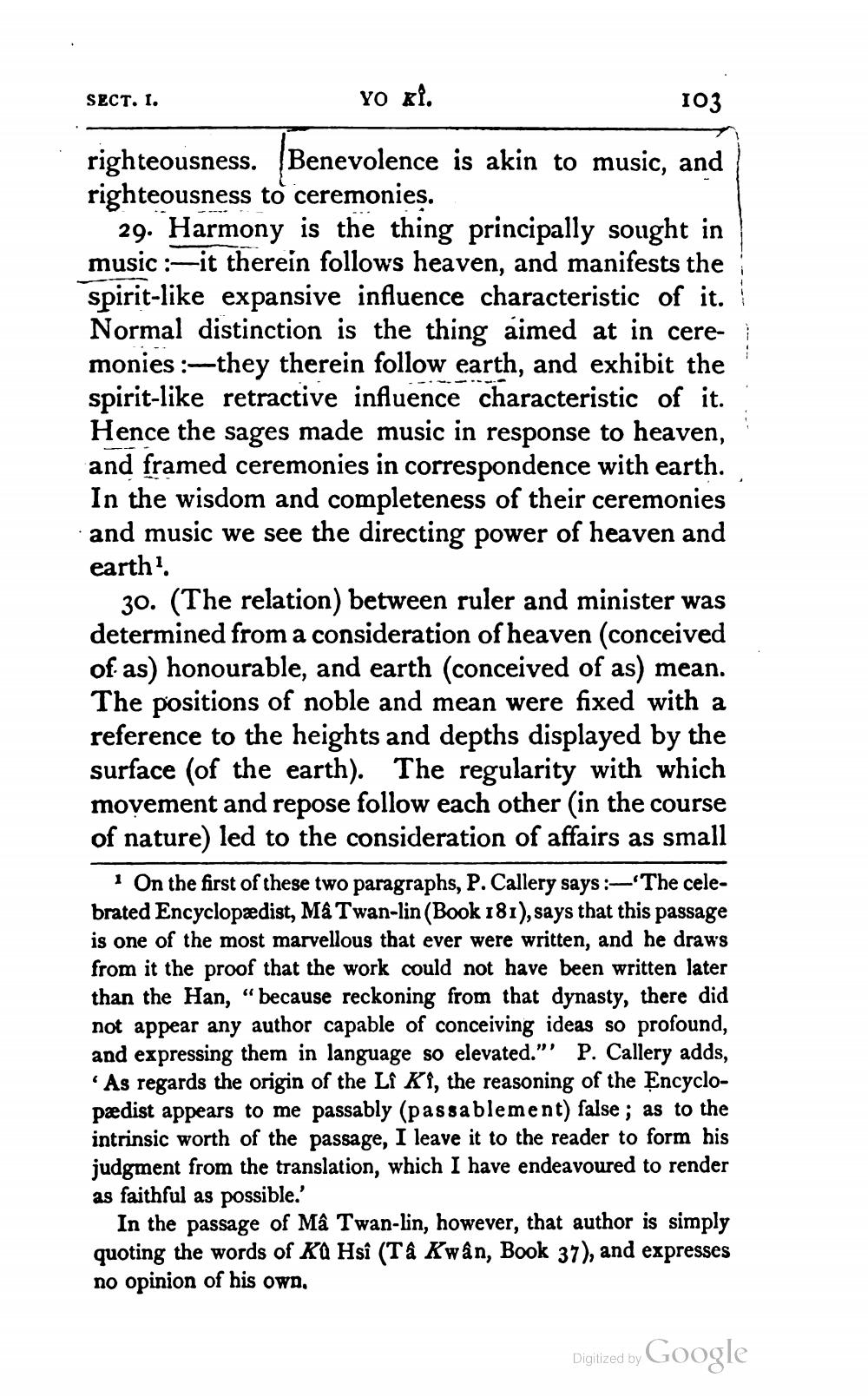________________
SECT. I.
yo ki.
103
righteousness. Benevolence is akin to music, and righteousness to ceremonies.
29. Harmony is the thing principally sought in music :-it therein follows heaven, and manifests the spirit-like expansive influence characteristic of it. Normal distinction is the thing aimed at in ceremonies :--they therein follow earth, and exhibit the spirit-like retractive influence characteristic of it. Hence the sages made music in response to heaven, and framed ceremonies in correspondence with earth. In the wisdom and completeness of their ceremonies and music we see the directing power of heaven and earth?
30. (The relation) between ruler and minister was determined from a consideration of heaven (conceived of as) honourable, and earth (conceived of as) mean. The positions of noble and mean were fixed with a reference to the heights and depths displayed by the surface (of the earth). The regularity with which movement and repose follow each other in the course of nature) led to the consideration of affairs as small
* On the first of these two paragraphs, P. Callery says :-The celebrated Encyclopædist, Må Twan-lin (Book 181), says that this passage is one of the most marvellous that ever were written, and he draws from it the proof that the work could not have been written later than the Han, “because reckoning from that dynasty, there did not appear any author capable of conceiving ideas so profound, and expressing them in language so elevated."' P. Callery adds, "As regards the origin of the Li Ki, the reasoning of the Encyclopædist appears to me passably (passablement) false ; as to the intrinsic worth of the passage, I leave it to the reader to form his judgment from the translation, which I have endeavoured to render as faithful as possible.'
In the passage of Mâ Twan-lin, however, that author is simply quoting the words of KQ Hsî (Tá Kwan, Book 37), and expresses no opinion of his own.
Digitized by Google




